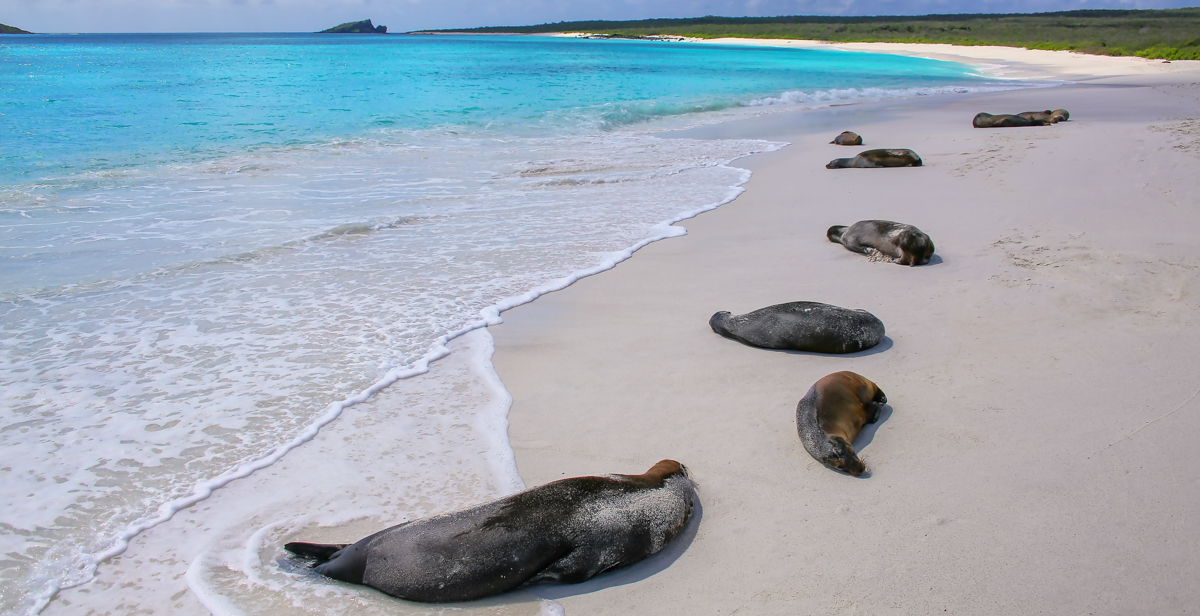South Signs Galapagos Agreement
Posted on August 29, 2019

University of South Alabama faculty and students will have opportunities to gain world-class research experiences in the Galapagos Islands, thanks to a recent agreement whereby the University has become a member institution of the Galapagos Science Center. The Galapagos Science Center opened in 2013 as a joint venture between the University of North Carolina at Chapel Hill and the Universidad San Francisco de Quito in Ecuador.
The center, located in San Cristobal on the Galapagos Archipelago, Ecuador, is where English naturalist Charles Darwin visited while researching “On the Origin of Species,” his scientific theory of evolution by natural selection that became the foundation of modern evolutionary studies. Today, the area is a focal point for modern ecological studies, primarily because of its many unique species and temperate climate, which is caused by the islands straddling the equator.
“The Galapagos Science Center is an important opportunity for our faculty because they will be able to interact and cooperate with scientists from all over the world with research going on in multiple disciplines,” said Dr. David Johnson, provost and senior vice president for academic affairs at South Alabama. “Besides natural sciences, there is research there in the social sciences, archaeology and health sciences, as well as others. Being a member of this consortium gives us privileged access to the laboratories in the science center, and the staff there has extremely good relationships with the national park, which is protected by the nation of Ecuador, and in order to do research there you have to be permitted by the national park.”
The Galapagos Science Center has ties to South beyond the agreement. Dr. Tony Waldrop, USA president, played a lead role in facilitating the collaboration between USFQ and UNC Chapel Hill when he was an administrator at the latter.
Other opportunities with USFQ in Ecuador will include faculty exchanges, student exchanges, undergraduate and health-related residencies and short-term internships. South students will have the opportunity to participate in research studies under the direction of USA faculty members and through study abroad programs with the Universidad San Francisco de Quito.
Johnson said study areas can include, but are not limited to:
- Climatology, oceanography, seismology and volcanology
- Biotic aspects of the terrestrial and marine systems of the Galapagos Archipelago
- Fisheries and fisheries management
- Water and water quality
- Relationships and interactions between the natural system and social system of the islands
- Tourism and hospitality
- Health-related research and services
- Human nutrition and psychosocial interactions
- Civil and coastal engineering
“Members come from all over the world to study there, and this opens up incredible opportunities for our faculty and students in many areas,” said Lynne Chronister, vice president for research and economic development at USA.
South has established a grant program. For information on how to apply, visit the website of the Office of Research and Economic Development. Deadlines for applications are Sept. 15.



